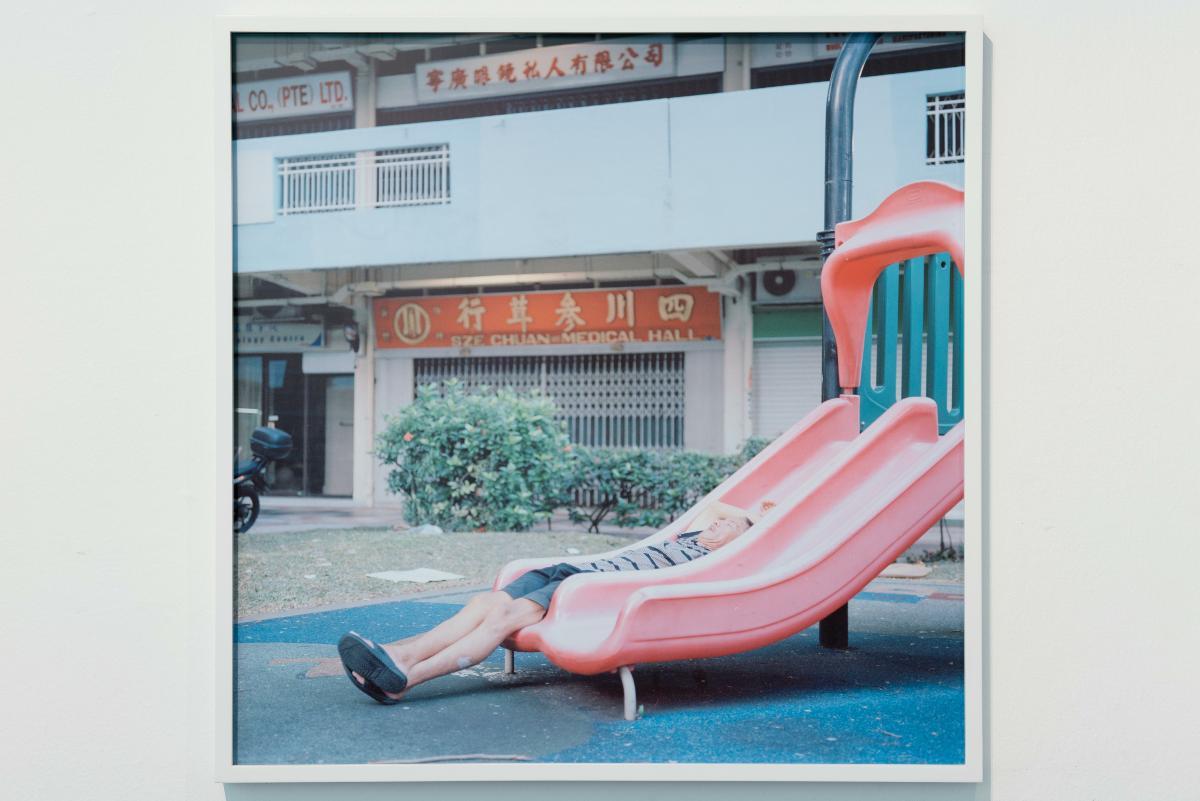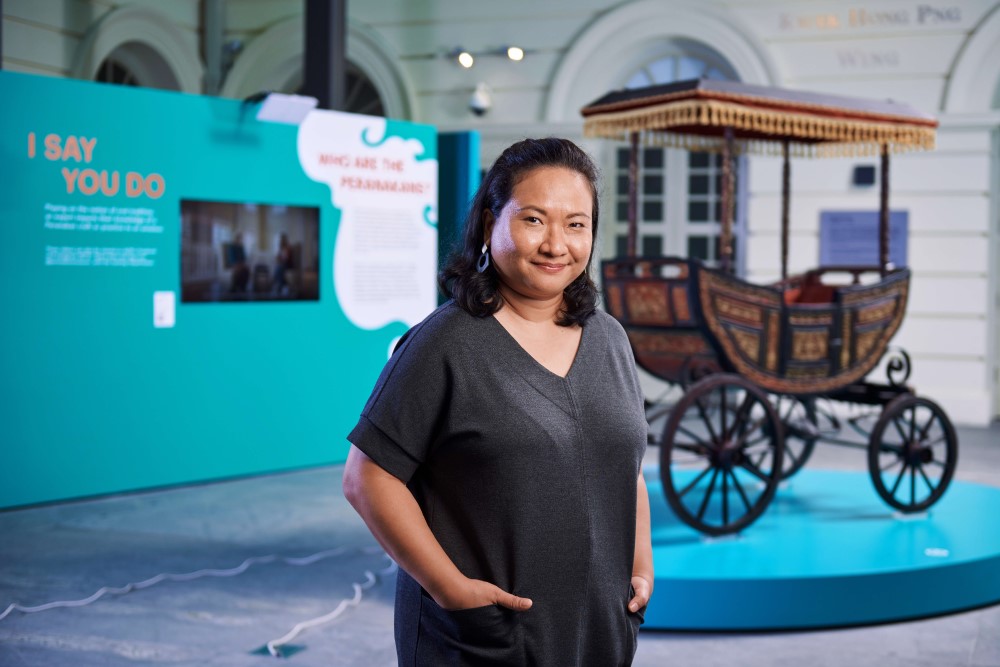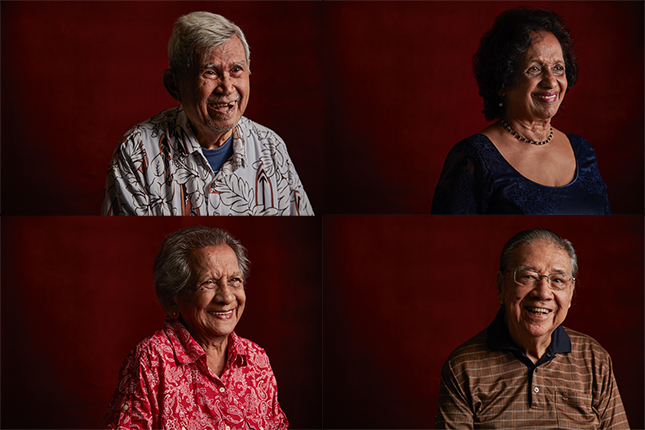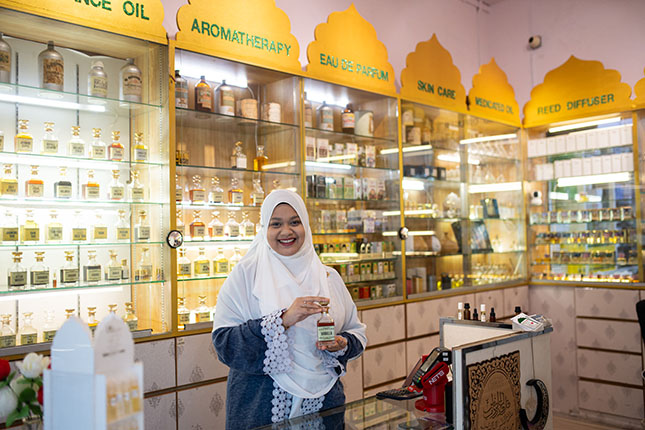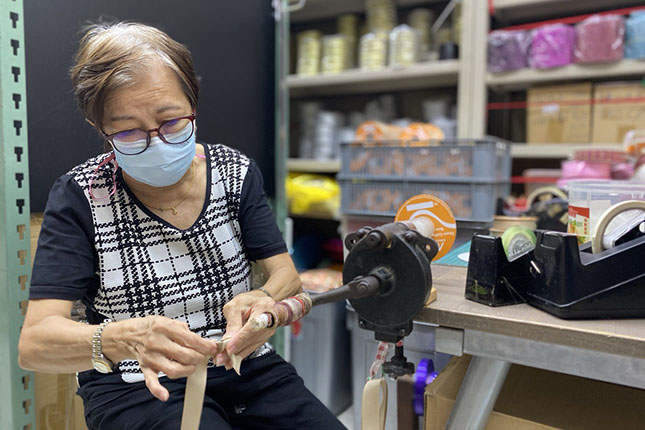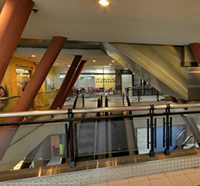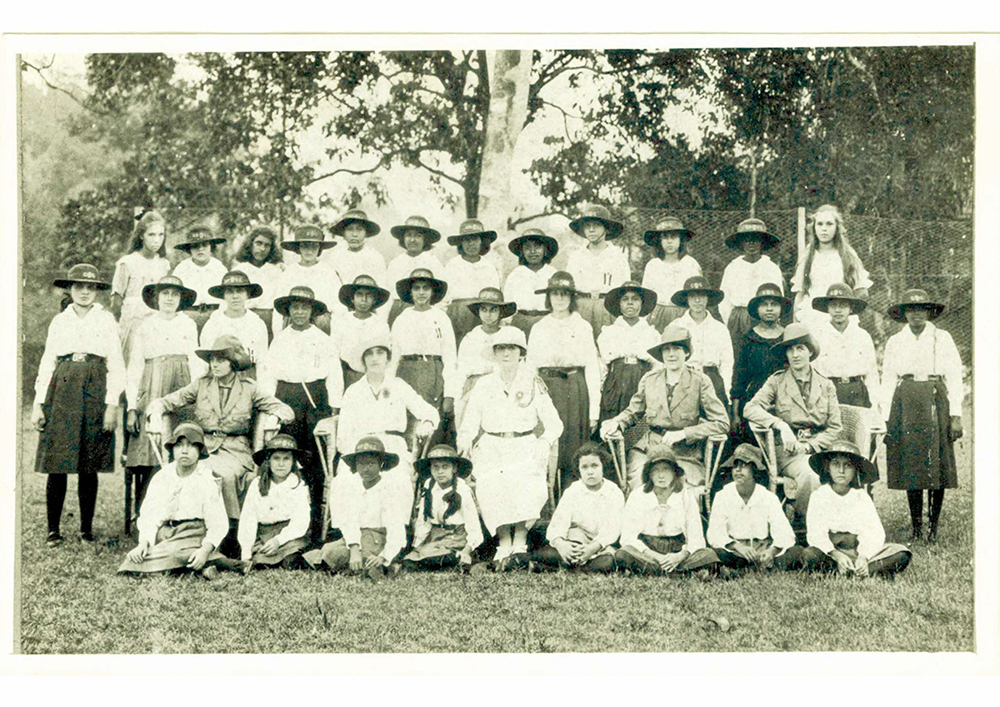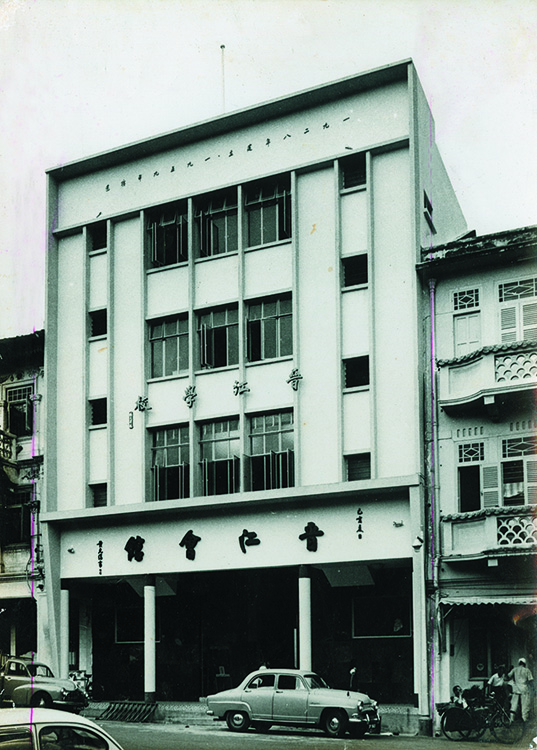Fibres in His Veins
|
Name of business: |
Paramount Traders (S) Pte Ltd |
|
Business location: |
83 Arab Street, Singapore 199779 |
|
Business type: |
Textile |
|
Established: |
1967 |
When Paramount Traders (S) Pte Ltd started out in High Street in 1967, Singapore was known as a textile hub, full of local and overseas buyers eager to buy textile piece goods from stockists and resell them back to the semi-wholesale market. Back in those days, Kampong Gelam was also thriving in this trade. Much has changed over the decades and Paramount Traders (S) Pte Ltd has gone through countless challenges. The second-generation owner Mr Anil Chandru Thadani continues to be passionate about the business, devoting himself to keep it alive.
Paramount Traders (S) Pte Ltd is a textile trader and a family business that has continued for three generations. Established in 1967, the business has gone through countless challenges as they grapple with a fast-changing global environment.
The dilemma of having to retain the traditions and keep the business going despite the sliding demand is a challenge for second-generation owner Mr Anil Chandru Thadani, who took over the business from his father Mr Chandru. “We don't change our focus fast. You know, we're not like one of those modern businesses that jettison their focus quickly. Being in the traditional business we think long term; we don't forget our tradition of business.”
The “long term” has transcended over 55 years, since Mr Chandru first established the business in 1967, shortly after arriving from Japan with his family and two-year-old Anil in tow. From a small office in High Street with inventories stored in public warehouses, to the buildings and retail space they own in Kampong Gelam today, the journey has been one of sweat and blood, boosted with some luck.
In the past, Kampong Gelam was known as the textile hub. Many textile businesses could be found in the neighbourhood, with crowds of customers keeping shops bustling and owners busy. “People from the region whether it is Indonesia, Malaysia, Thailand, Middle East…all came to Singapore as a centre to purchase textiles from the wholesale markets. It was a thriving industry back then, in the 1960s, 1970s, 1980s, 1990s, even up to early 2000s.” Mr Anil says, remembering the good old days.
The business began to evolve for the first time in the late 1980s when the risks of wholesaling to developing economies like Pakistan increased. This was because textile traders like Mr Anil were taking the risk of giving credit to buyers who they did not know well, in order to secure the sales. “I know that if I'm going to continue in this credit business blindly, I'm going to get burnt very fast and I can disappear from this industry, which happened to a lot of other people who didn’t change their business model. So, we decided to go into the semi-wholesale business too.” Mr Anil had to travel frequently to Brunei, Sarawak, and Sabah with a bag of fabric samples to sell directly to retailers. While the quantity sold was smaller as compared to the wholesale business back home, the textiles were of higher qualities and larger varieties, which delivered a better profit margin.
However, Paramount Traders (S) Pte Ltd was soon hit with a major obstacle. In the 2000s, China’s textile sector began selling directly to consumers at factory prices, cutting out the middlemen and wholesalers. Confronting the headwinds, Mr Anil changed his strategy. He brought his wholesale and semi-wholesale businesses as well as his inventories under one roof in Kampong Gelam. He also expanded into the retail business using the shophouse front to introduce the brand, Liberty Silk House. “I remember most of the textile retail shops in Arab Street. My co-owners and my neighbours were older. So, their concept was very traditional and old-fashioned. When we came in and opened Liberty Silk House, I decided to do a classical modern concept with wood carvings in off-white colour on the furniture,” he recalls with pride. Those early years in retail were good, with sales not only being sufficient to cover the overheads, but also delivering some profit and enabling Mr Anil to start another retail shop and brand, Rania Silk House. It was a good 10 to 12 years before the retail business began to dive and business was swiftly scaled back.
Mr Anil’s dedication and passion for the trade, as well as his devotion to tradition, have not only built his family’s history and fortune, but also kept Paramount’s business going. “Fabric is something that you may have knowledge in, but if you don't have the timing, the concept, and the clientele, it will not work. So, you need everything to fall in place. It's years and years of work. That is tradition, that is the business.” His father used to work a minimum of ten hours a day, six days a week, and so did he. Nowadays, he works a six-day week, coming in at 10am and staying till 6.30pm or 7pm on weekdays, and 5pm on Saturdays. Mr Anil’s commitment to a rigorous work schedule is testament to his tenacious spirit, honouring the “seed from which the business came from”. His motto is “Never forget the seed from where you have grown”, and that discipline keeps him rooted, as he continues this challenging trade into the future.
Looking ahead, Mr Anil does not expect his children—who have taken up other professions—to continue in the business. He doubts that the next generation can withstand the kind of hard work and the stress of having to extend huge credit to customers or being stuck with stocks that are not moving. Also, it is not just about running a business. “It has to be part of you. It has to be in your DNA. We always joke in our textile industry that we don’t have blood, we have fibres in our veins.” He accepts that the business may last another 15 years: “If you ask me my honest opinion, I don't think this fabric business can continue past my generation.”
Interviewed by Thaddeus Tan and Fuad Johari on 5 May 2022.
















